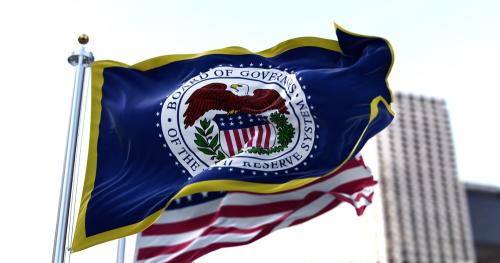Janet Yellen’s confirmation vote to succeed Ben Bernanke as Federal Reserve chief will occur in January. Meanwhile, Senator Rand Paul (R-Ky.) has said he may attempt to block or delay the confirmation vote unless the Senate takes up his “Audit the Fed” bill. “We will allow it to move forward,” he said, “and expedite it if they give us a vote on ‘Audit the Fed.’”
Senior Fellow Justin Wolfers, co-editor of Brookings Papers on Economic Activity, speaking on MSNBC’s Now with Alex Wagner,” said of Sen. Paul’s Audit the Fed bill:
It’s brilliant political rhetoric but in terms of what it does, it’s either completely empty, or completely harmful. “Audit the Fed” sounds like something we all should be in favor of and in fact that’s why we currently audit the Fed. The [GAO] audits the Fed carefully; the Fed releases its balance sheet literally every week. … What [Sen. Paul] wants to do is extend or change the Fed’s relationship with Congress. …
He really wants Congress to get more involved in scrutinizing monetary policy decisions at the Fed. … But what this is going to do is in some sense give Rand Paul and the rest of Congress a greater say in monetary policy. If you like what they’ve done with fiscal policy, then just look out. …
Their view is somehow Congress would be doing a better job than the Fed. The markets don’t buy it, professional economists don’t buy it. Our friends on the extremist libertarian right and the hard-money gold bugs think this is fabulous.
Listen also to Senior Fellow Sarah Binder‘s recent Brookings Cafeteria podcast in which she explained the relationship between Congress and the Federal Reserve.
Get more Brookings research and commentary on Federal Reserve and monetary policy.
* This post has been updated to reflect Janet Yellen’s new expected confirmation vote coming in January.



Commentary
Audit the Fed: Completely Empty or Completely Harmful
December 19, 2013